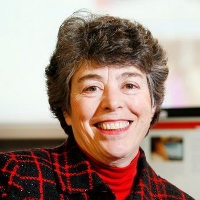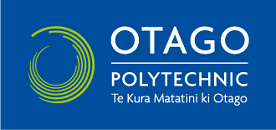
Technology Diffusion and Models of Change in Education
Learn about the complexities of change with digital technologies in tertiary education from the perspective of the educator and students and apply this knowledge to local teaching contexts.
What’s it about?
Change is complex. However, by using models we can overcome the complexity associated with human interactions and change with digital technology while retaining a sense of reality. In this course we will study models of change focusing on different elements of the local ecosystem, for example, the innovation itself and the personal context including the educator and students. The aim is to better understand the characteristics of change with digital technology for successful adoption in the local context.
The Change with Digital Technologies in Education elective comprises three complementary micro-courses:
- Technology diffusion and models of change (this course);
- Scenario planning for uncertain futures; and
- Capability maturity evaluation of e-learning within the organisation.
What will I learn?
In this course, students will:
- Consider change with digital technology in education from an ecological perspective including: the ICT innovation, the classroom context, the organisation, national and international perspectives.
- Identify a project relating to change with digital technology in education as a research topic.
- Critically evaluate technology diffusion theories and a number of models of change and apply this knowledge to your identified project.
- Prepare an academic essay focusing on change with digital technology in your local context.
What’s involved?
You will participate in an open international online course for 10 working days (2 weeks). You will need to allocate about 1.5 to 2 hours per day for the duration of open course. During the course you will:
- Work through online materials and open access resources
- Openly publish and share the outputs from designated eLearning activities
- Interact and share of ideas with educators from around the world
Learners aiming for the Certificate of Achievement and/or credit towards the Change with Digital Technologies in Education elective will need an additional 30 hours of self directed study to prepare the final assessment for this course.
Prerequisites?
There are no pre-requisites to participate in the course. An internet connection and basic web browsing skills are recommended with the ability to create a blog and microblog account (instructions and self-study tutorials provided.)
Learners aiming to submit assessments for formal academic credit will need to meet the normal university admission requirements of the conferring institution (eg language proficiency and school leaving certificates). Learners aiming for the 3rd year Bachelor level are advised to have completed the majority of their 2nd year level subjects to have sufficient capability and experience for preparing assignments for 3rd year level of Bachelor study.
Image credit: Ink in Water by Leonardo Aguiar, Creative Commons Attribution.
 Prof Niki Davis, is the University of Canterbury Professor of e-Learning and Director of the College of Education e-Learning Lab. She is recognised internationally as a
Read More
Prof Niki Davis, is the University of Canterbury Professor of e-Learning and Director of the College of Education e-Learning Lab. She is recognised internationally as a
Read More
 Dr Wayne Mackintosh, is the founding director of the OER Foundation and is the designated UNESCO and ICDE Chair in OER at Otago Polytechnic. He is
Read More
Dr Wayne Mackintosh, is the founding director of the OER Foundation and is the designated UNESCO and ICDE Chair in OER at Otago Polytechnic. He is
Read More
 Dr Wayne Mackintosh, is the founding director of the OER Foundation and is the designated UNESCO and ICDE Chair in OER at Otago Polytechnic. He is
Read More
Dr Wayne Mackintosh, is the founding director of the OER Foundation and is the designated UNESCO and ICDE Chair in OER at Otago Polytechnic. He is
Read More
The course materials were originally developed by the e-Learning Research Lab at the University of Canterbury as a research project in collaboration with the OER Foundation as the University's contribution to the OERu network. The core materials were successfully trialled in 2013 in the Change with Digital Technologies in Education course (EDEM630) as part of the Postgraduate Diploma in Education (e-Learning and Digital Technologies) at the University of Canterbury. Openly licensed, this iteration of the course is designed for vocational educators at the 3rd year bachelor's degree level.







